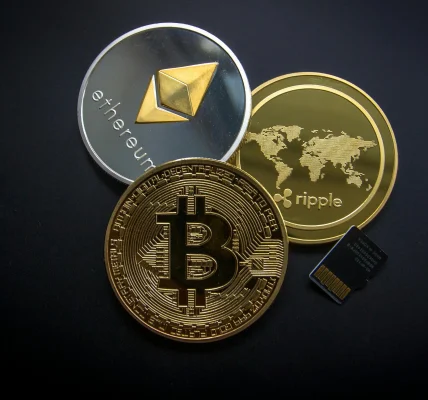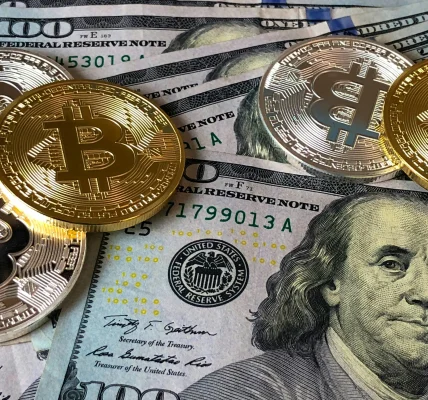The world of cryptocurrency is an opportune one in which an investor gets manifold increases in his or her investment. On the other hand, the decentralized and usually unregulated nature of this virtual space turns it into a real haven for scams. Fraud schemes in cryptocurrency are of all shapes and sizes to pilfer money from unsuspecting investors, from phishing to multi-level Ponzi schemes. Knowing how to identify these scams and protect your assets is key if you’re getting into the cryptocurrency market. Here’s how you can spot cryptocurrency scams and some tips for keeping your investments safe.
1. Common Types of Cryptocurrency Scams
The first thing first, you have got to understand what are the most common frauds around the crypto world. Following are some of the most prevalent types of fraud:
Ponzi Schemes: These are schemes promising very high returns at low or no risk, which are accomplished by paying early investors with money contributed by the new investors. Eventually, such scams implode when new investors stop coming on board, leaving most participants with substantial losses. Be wary of any investment opportunity that sounds too good to be true, especially if it promises quick, high returns with minimal risk.
Phishing scams: These include scam e-mails, websites, or social messages that could deceive you into giving away your personal information, such as keys of cryptocurrency wallets or login credentials. Most phishing e-mails are designed to look like legit services or exchanges, and they might ask you to enter your sensitive information on some fake site.
Fake ICOs: New cryptocurrencies are sold to investors in an event called an ICO before they hit exchanges. Scammers have been creating fake ICOs just to get cash for non-existent projects and then vanish, ultimately with all the money of the investors. Homework is always required well before engaging in an ICO.
Pump-and-Dump Schemes: Scammers artificially inflate the price of a low-value cryptocurrency through the use of false information. Once the price goes through the roof, scammers sell their stake and leave other investors with worthless coins after the price crashes.
Rug Pulls: The developers of some cryptocurrency project raise funds from investors only to run away with it, abandoning the project. It happens when DeFi tokens get listed on decentralized exchanges with no or scant control.
Bogus Exchanges/Wallets: Scammers set up sham cryptocurrency exchanges or wallet apps in the hope of siphoning funds off unsuspecting investors. These websites and apps may appear very professional, but once you have deposited money on it or given them access to your private keys, they will drain your assets.
2. Red Flags to Watch Out For
The first step in cryptocurrency scams is learning to identify warning signs. The key red flags that something could be a scam include the following:
High returns, no risk: No real investment, particularly in the very risky virtual currency market, can absolutely guarantee high returns and with no risk involved. Any opportunity which promises you high profit that involves little to no risk does need to raise suspicions.
Pressure to Act Now: Many scamsters will give the impression that action has to be taken on the spot. Some may say that there is limited availability, or the price will shoot up sky-high in a little time if you do not invest right away. Take the time to do your homework before investing in anything.
Unverifiable or Anonymous Teams: Reputable projects within cryptocurrency are usually quite open with their team members and the way in which development goes. Of course, if there’s an anonymous team or a hard-to-verify team, this would definitely be considered a red flag. Many scammers hide behind anonymity so that when the scheme collapses, they could not be held accountable.
Absence of a Whitepaper: Every proper cryptocurrency project would design a whitepaper explaining the technology behind it, its goals, and the development roadmap. If the project has not issued a whitepaper or its whitepaper is vague and poorly written, it’s already an indication that this project does not hold credibility.
Unregistered or Unregulated Platforms: Every cryptocurrency exchange or investment platform that isn’t registered with a regulatory authority-like the SEC-should raise a red flag. Of course, this market is far from being as regulated as traditional finance, but some level of conformance to local law is expected, and one should expect nothing more from a serious platform than such a thing. If it seems weird or avoids regulations, avoid it.
Social Media Scams and Impersonation: Scammers impersonate well-known influences in cryptocurrency on social media, CEOs, or other platforms and post fake giveaways; they also request cryptocurrency donations or reroute followers to scam websites. Be sure to check if the account is real before you start engaging. How to Protect Your Wallet and Investment
Now that you are aware of the common scams and some warning signs, here are steps to take in safeguarding your cryptocurrency investments:
Research Thoroughly: Do enough research on any cryptocurrency or project before investing in it. Check for the whitepaper of the project, the credentials of the team, online reviews of the project, and so forth. Get the information from reputable sources instead of relying entirely on the website or social media of the said project.
Use Reputable Exchanges and Wallets: Only well-established, reputable crypto exchanges and wallet providers should be used. Reviews should be considered, along with what security measures are in place and whether the platform complies with regulations. Avoid lesser-known platforms with no track record for success or security.
Enable Two-Factor Authentication: This creates an additional layer of security to your crypto accounts. Therefore, even if hackers manage to obtain access to your login details, they will find it very difficult to penetrate the account.
Keep Your Private Keys Safe: Never share your private keys or even seed phrases with any person. They are the only keys that provide access to cryptocurrency holdings, and once compromised, funds get stolen. Store your private keys offline in a secure location, like a hardware wallet.
Links and Emails: Even though an email or message contains links from reputed sites, be very wary of them. Always check who the sender is and double-check the URL before clicking on them. Many times, scammers create fake sites identical to actual ones, and through such sites, they have your information compromised.
Free” schemes: Schemes offering “free” cryptocurrency in exchange for deposits or information are scams. If the offer sounds too good to be true, most likely it is. Be very leery of giveaway scams promoted on social media sites where scammers impersonate legitimate figures in the crypto world.
Avoid Wild Promotions: Be wary of projects or exchanges relying on flashy marketing, either with celebrities or by making wild promises. Serious cryptocurrency projects tend to rely on substance and not hype.
4. Keeping Knowledge up to Date
The field of cryptocurrency is constantly changing: new coins, platforms, and technologies come into the space pretty frequently. Keeping good knowledge of everything that goes on in this sphere may help you avoid frauds and invest wiser.
Follow Credible News Sources: Pay close attention to updates from established digital currency news sites and portals on recent scams, regulations, and market direction. Following trusted news can help you get accurate information and avoid scams while finding valid investment opportunities.
Join Crypto Communities: This is the best means of gaining updated information on cryptocurrency and learning from the varied experiences of other investors by joining any cryptocurrency forum or a social media group. Be wary of unsolicited advice or promotions by anonymous users. Always verify information against multiple sources before taking action.
Stay Ahead of Regulation Changes: Know when the governments of different parts of the world are working toward updating their cryptocurrency-related regulations. Knowing these updates will help in staying compliant with the law and avoid scams which make money off unsuspecting investors in markets where such activities aren’t regulated.
5. What to Do If You’ve Been Scammed
If you think you have fallen victim to one of these scams, there are steps you can take in trying to minimize any effects. First and foremost, this would be reporting the scam to your exchange or wallet provider. In some cases, if the action is swift enough, some platforms might freeze transactions or recover the funds that have been stolen.
Complain to the authorities: Contact authorities that seem appropriate given the nature of your claim. It could be the FTC, SEC, or the financial regulatory body in your country. Sometimes, depending on your case, they can investigate and prosecute the scammers.
Warn others: If you have been scammed, letting others know about it may prevent them from getting scammed, too. Report the scam in all crypto forums, social media groups, and other online communities.


